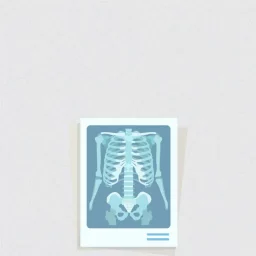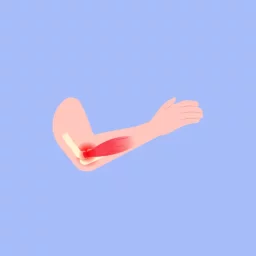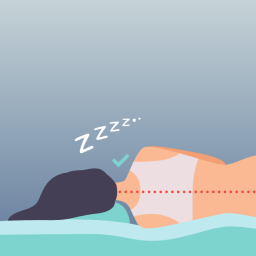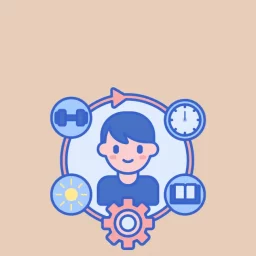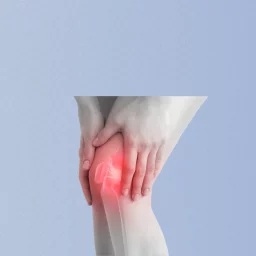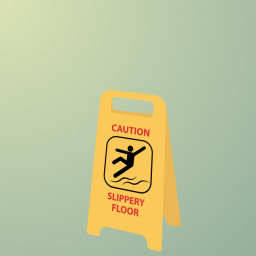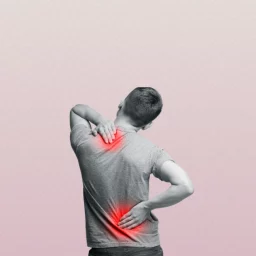Optimizing your Muscular Health for the Later Years
Muscular Health and Chiropractic
It’s been said that “the trick is growing up without growing old.” If you’re over the age of 65, you’ve likely pondered this notion at least once in your life, as multiple chronic conditions have become the new norm for seniors. Learn how to optimize your musculoskeletal (MSK) health in the later years for better health growing old.
There are currently more adults in Canada aged 65 and older than children under the age of five. By 2050 over 20% of the world’s population will be older than 60 – that’s approximately two billion people! Unfortunately, falls are a common occurrence in our aging population. One in every three Canadians over the age of 65 will experience a fall with hips, wrists and pelvic fractures being the most common injuries.
Chiropractors play an essential role in optimizing MSK health as we age. Chiropractic care addresses the musculoskeletal system (MSK) keeps people moving and contributes to the compression of morbidity. Prevention and active living are keys to optimizing your MSK health. Chiropractic can help people maintain their physical function, as well as help manage pain. This in turn helps aging Canadians stay independent, avoid nursing homes/hospitalization and can provide alternatives to pain medication.
In conjunction with caring for senior Canadians, Chiropractors are committed to reducing injury and disability from injuries and falls. By following our suggested fall prevention tips; you can reduce your chances of experiencing a fall that may lead to additional injuries down the road.
A senior who’s suffered an injury from a fall knows the dramatic impact it can have physically, but also psychologically. Falls can swiftly take away the sense of independence and confidence that allows one to fully enjoy life and also impact the lives of loved ones.
Reducing the risk of injury and fall prevention is an important part of keeping your MSK system healthy. There are easy tips and techniques anyone can use that help reduce the risk of injury. As we grow older, the risks of falling increase and so do the risks of serious injury from a fall. Most trips, slips and falls happen in and around the home.
Optimizing your MSK Health
Your physical health can affect your risk of tripping, slipping and falling. For example, some medications can affect your alertness, judgment and coordination. Skipping meals and not drinking enough water can make you lightheaded and unsteady on your feet — especially in the hot summer months and after exercise. Poor eyesight can lead to dangerous stumbles. The good news is there are many simple things you can do to reduce your risk of an MSK injury from falling.
1. Medications
Talk to your family physician or pharmacist about any prescription medicines, over-the-counter products or herbal supplements you may be taking. Medications and supplements can interact with each other, so it’s important to talk to your health professional about all of the things you are taking. Some medicines and supplements can cause dizziness, weakness or other side effects that may increase your risk of slipping, tripping and falling. Advice from a health professional can reduce your risk.
2. Eyes & Ears
Your eyes and ears protect you from falling. For example, your eyesight and hearing alert you to hazards such as traffic. Have your eyes and ears tested at least once every two years, preferably every year. Remember to take off your reading glasses when you are walking and wear hearing aids if you need them.
3. Eating Well
Skipping meals can cause dizziness and weakness. Eat regular, nutritious meals to stay alert and steady. Canada’s Food Guide to Healthy Eating is a good source of information. It’s equally important to drink enough non-alcoholic and non-caffeinated beverages.
4. Foot pain?
Foot problems such as bunions, calluses, ingrown toenails and plantar warts contribute to unsteadiness. If your feet hurt, you can start to compensate to avoid the sore spots. A chiropractor can assess your gait – the way you walk – and prescribe orthotics for your shoes if needed. Always wear good-fitting supportive shoes, with a non-slip sole.
5. How’s Your Health?
Health conditions such as high blood pressure, diabetes, anemia and low blood sugar can contribute to feelings of dizziness and faintness. Talk to your health professional about what you can do to manage the symptoms of these types of conditions.
6. Balance
Balance is something that we all tend to lose as we age, however, there are things we can do to maintain balance and even improve it over time. Falls are one of the biggest injuries that seniors face. A good portion of these falls can be attributed to a loss of mobility and balance. Gentle activities like Tai Chi are a form of exercise, which can also be hugely beneficial to maintaining and improving your balance, coordination and flexibility.
7. Stay Active
Being active is one of the best ways to optimize your MSK health. Physical activity reduces your risk of slipping, tripping and falling while improving your strength and balance. Almost any kind of physical activity is helpful – but some activities deliver greater benefits than others. Active people get more physical exercise and are more mentally alert. Social activities, sports and clubs all keep you on the move – and that’s good for your physical strength, balance and perception. Try to get at least 20 minutes of exercise at least three times a week – preferably every day. Canada’s Physical Activity Guide to Healthy Active Living for Older Adults is a great source of information to help get you started.
8. Practice Moderation
Know your limits and watch your alcohol consumption. Alcohol affects your sight, hearing, balance and judgment. Alone or in combination with medications, drinking too much can lead to serious falls.
9. Perfect posture
Good posture not only makes you look better, but it also delivers increased energy, better breathing, improved circulation, and less wear-and-tear on your spine and joints. It’s an investment in both your appearance and your MSK health. The secret to good posture is maintaining the spine’s natural curves. If your spine is not properly aligned, your muscles and ligaments have to work harder to keep you upright and this can result in MSK strain and pain.
Taking the steps to care for your MSK system as you age improves strength and coordination, which helps prevent your chances of losing balance and falling. If you have a nagging injury or pain that is keeping you on the sidelines of an active life, visit your healthcare team at CURAVITA for help with growing up without growing old!
Our model of patient-centred care in a collaborative multi-disciplinary environment will ensure you get the right care, at the right time and in the right place. For more information or to book an appointment with one of our chiropractors, physiotherapists or massage therapists, visit our clinic websites at Curavita Byward and Curavita Glebe.


